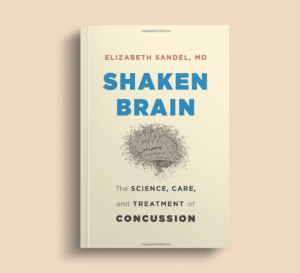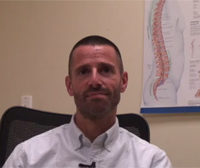The Consequences of Concussions Are Not Necessarily “Mild”

Having played soccer in the field behind her family’s farmhouse as a young girl, Caroline already knew firsthand about the bumps and scrapes that come with her sport when she began competing in high school. Although she couldn’t remember ever suffering from a “true” concussion, as she termed it, she also lost count of the many times she had collided with other players on the field.
In her junior year of high school, Caroline suffered a significant blow after leaping into the air to head a ball, missing, and then crashed into another player. It took her a couple of days to really recover from that collision, but once she felt better, she shrugged off the incident and never considered not playing in the season’s final game.
That final game also included a collision. This time, Caroline couldn’t shrug off the headaches, dizziness, and sensitivity to light and sound that plagued her for three weeks afterward. She tried everything—rest, cold compresses, warm baths. But nothing relieved her symptoms. She began to lose sleep, and her grades took a dive. While her family dealt with all these health concerns, another worry loomed. They had been banking on a college athletic scholarship, so when Caroline’s doctor told her she couldn’t safely continue playing soccer, she and her parents faced—and rebelled against—the possibility that, after all her hard work, she might miss out on her dream.
Like Caroline, many young athletes ignore a concussion’s symptoms when it occurs in the context of playing a sport they love. Rarely does an athlete lose consciousness from a blow received on the field or court. Even when an athlete briefly gets knocked, they underestimate their injury’s severity—getting “dinged” or “seeing stars” is a rite of passage, after all. Nearly half—two out of five—of youth athletes return to play before fully recovering from a concussion.
Caroline suffered some of concussion’s classic symptoms. Others include neckache, backache, mental confusion, memory problems, irritability, anxiety, and even depression.
Most healthy athletes can recover to some degree from a mild concussion, particularly if they’ve not experienced blows to the head in the past and if they recognize the symptoms or potential for trouble and leave the playing field rather than toughing it out.
Unfortunately, one of the biggest problems with athletes is that, like Caroline, they ignore head or neck trauma, focusing instead on the need and desire to continue playing for the sake of the team. In fact, a study carried out by the Center for Injury Research and Policy at Nationwide Children’s Hospital in Columbus, Ohio found that nearly half (40.5 percent) of high school athletes experiencing a concussion return to play too soon.
Why is this a problem? An athlete who continues to play after a concussion could suffer a second concussion before his brain has fully recovered, potentially leading to permanent damage. Although rare, “second impact syndrome” can be fatal, and in those cases where it’s not, its long-term effects can be very damaging.
Too often, patients diagnosed with “mild” brain injuries are told they will fully recover. When they continue to experience unexplained impairments and inadequate treatment, many student athletes find themselves permanently sidelined.
More and more research focuses on the long-term effects of concussion, but it’s still unclear how safe it is for kids who have suffered a concussion to return to play. While parents and athletes want to be safe, they are also invested in their team’s success and their own ambitions. It’s important to always take appropriate precautions and recognize a concussion’s symptoms, because an injury to a still-developing brain can mean lifelong challenges and disabilities affecting more than just athletics.
You Might Also Like
Concussion in Youth Sports
Dr. Andrew Judelson, a physiatrist and sports medicine physician at Spaulding Rehabilitation Hospital, discusses sports-related concussion evaluation and treatment at his outpatient clinic on Cape Cod.
Concussions in College Athletes
Dr. Melita Moore, a physiatrist, sports medicine doctor, and brain injury medicine physician reports about her experiences when she served as the physician for University of California Davis sports teams. She discusses collision sports such as football and soccer that have a high incidence of concussion, but also other sports…
Comprehensive Care of Concussions
Dr. Richard Delmonico, a neuropsychologist, outlines the approaches to triage and treatment in a concussion clinic in the Northern California Kaiser Permanente health system. He also discusses the uses of neuropsychological testing to help with diagnosis and management of people with concussions and other brain injuries.
Keep up to date
Get updates on the latest in concussion, brain health, and science-related tools from Dr. Elizabeth Sandel, M.D.
By clicking SIGN UP, you agree to receive emails from Dr. Sandel and agree to our terms of use and privacy policy.
Get the book!




